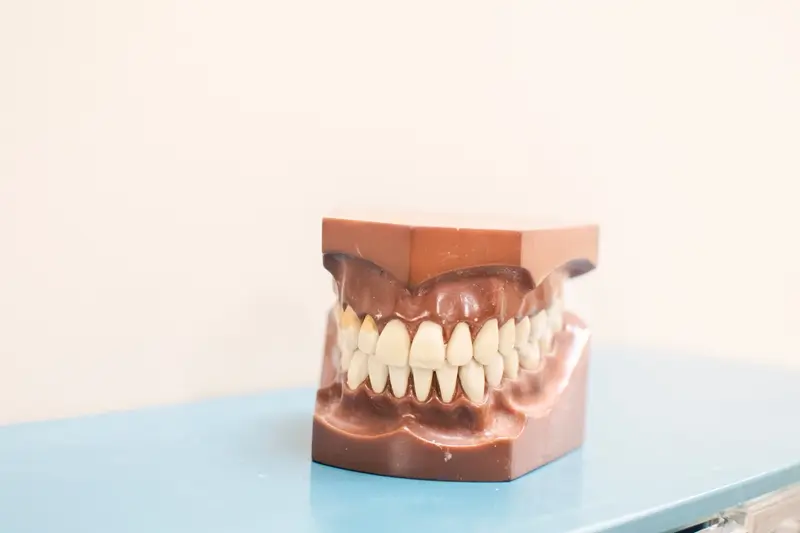Good oral health is about more than just having clean teeth. Just as important is ensuring your gums are strong, healthy and free of plaque. Plaque build ups can cause gum disease, or gingivitis. While gum disease can easily be treated, if left unchecked it will rapidly develop into advanced gum disease, which is known as periodontitis. Periodontitis causes serious and potentially permanent damage, and may require aggressive treatment.
Luckily, a basic oral health regimen that includes daily flossing and brushing can treat and prevent gum disease before it ever reaches its more advanced stages. A professional cleaning by your dentist may also help alleviate symptoms.
Gingivitis
Gingivitis describes the earliest stages of gum disease and is far milder than periodontitis. However, just because early-stage gum disease is less severe does not mean it should be taken lightly or ignored.
Gum disease occurs when plaque forms around your gums and the base of your teeth. Plaque is a mix of saliva, bacteria and sugars that goes from sticky to hard if not removed. Plaque is constantly building up in your mouth and is also a chief culprit of cavities, according to Colgate Professional.
The warning signs of gingivitis are typically easy to spot. Be on the lookout for swollen gums that bleed easily. In some cases, you may also see pus in the area between your teeth and your gum. Gingivitis can also cause bad breath or leave an off taste in your mouth.
In more severe cases of gingivitis, teeth may begin to look longer because of gum decay or you may begin to notice an air pocket between your tooth and gum. If you see these symptoms take hold, take immediate action. Your gingivitis may soon become periodontitis, and the damage and pain may be at risk of becoming permanent.
 Your teeth may appear longer than usual if you have gum disease.
Your teeth may appear longer than usual if you have gum disease.Periodontitis
Periodontitis represents the more advanced form of gum disease. This illness sets in as the weakened gums begin to separate from the tooth. In their absence, plaque moves further up the tooth and builds around the roots of the bone. In the most advanced stages of periodontitis, the fibres and bone of the tooth are destroyed. The damage caused to the teeth and gums by periodontitis can be permanent, and may have to be treated with tooth removal.
The chief difference between gingivitis and periodontitis, besides the severity of each, is that periodontitis impacts the structure of the tooth, while gingivitis is limited to the gums. If you believe that you have developed periodontitis , you should consult your dentist immediately.
Treating gum disease at every stage
The key to both fighting and preventing gum disease is the same: daily flossing and brushing. Flossing and brushing are the best ways to stop plaque from building up. Brushing cleans up the outer gums and teeth, while flossing removes food bits that can become plaque from between teeth and gums. Remember, plaque is constantly building up in your mouth, so establishing a daily routine is a must.
Your diet also plays a large part in how quickly plaque appears, according to the Dental Health Services of Victoria. Eat a balanced diet filled with fruits and vegetables, and stay away from saturated fats, sugary or acidic foods. Drink plenty of fluoridated water. Regular dental cleanings can also provide a big boost in the fight against plaque buildup. Adhering to these basic oral health guidelines should remove most of the risk of anything but the most mild forms of gingivitis.
The further your gum disease advances, the greater the chance that you’ll need more aggressive treatment to save your teeth. A dentist can determine the severity of your situation by probing the gums by measuring any air pockets that have developed. If your gum disease has advanced to the advanced stages of periodontitis, where plaque has destroyed much of an infected tooth, removal may be necessary. The earlier you change your oral health habits or get treatment, the lower the chances of permanent damage to your gums and teeth.
Wellington’s preferred dentists
While taking the time out of your busy life to schedule regular dental cleanings can be a challenge, it is also essential to fighting and monitoring gum disease. Luckily, City Dentists makes it easy to do the right things for your oral health. City Dentists takes the convenience of our patients to heart, with a central location by the Wellington train station, professional staff and modern offices. Whatever your needs, the team at City Dentists is here to help!
If you want to get your teeth looking better than ever, City Dentists can help. Contact us today to schedule an appointment. 🙂
